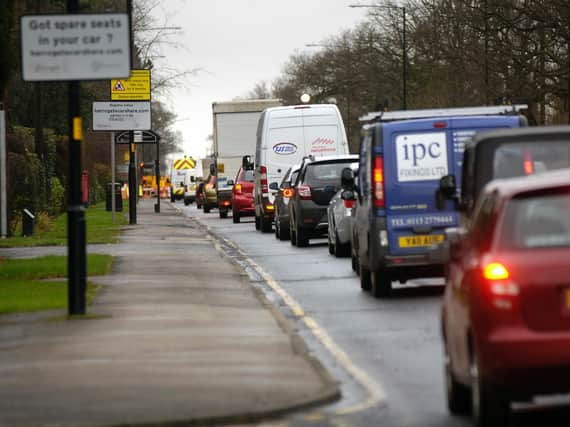Green debate: Will new Carbon Reduction Plan do what it says for North Yorkshire?


North Yorkshire County Council’s Carbon Reduction Plan, which was adopted by its executive on Tuesday night, outlines its aims for reducing its own carbon footprint as a major local organisation and employer with reference to broader aspirations for the county.
Advertisement
Hide AdAdvertisement
Hide AdThe new strategy will see it move towards becoming more environmentally-friendly via a series of actions which are set to include actions on:
Energy consumption
Staff travel
Household waste
Street lighting
Environmentally sustainable housing
Electric vehicles
A new carbon reduction badge for schools
School meals
Coun Carl Les, leader of North Yorkshire County Council, which spends £1.8million a year on energy at its offices, libraries and care homes - creating 4,547 tonnes of carbon equivalent emissions in 2019 - said: “Our ambition is for a North Yorkshire that continues to thrive, that can emerge strongly from the pandemic and adapt to change.
"An important part of this is working in a more sustainable way, reducing emissions and costs.”
The authority has recently completed a project to replace its 50,400 street lights with new LED technology, two years ahead of schedule, saving capital costs of more than £4m.
Advertisement
Hide AdAdvertisement
Hide AdEnergy and maintenance savings of £1.3m are also projected for this year and a cut of 3,000 tonnes of carbon emissions.
In addition, the council is also committed to developing an Electric Vehicle Infrastructure Rollout Strategy for the county, after a recommendation in 2020 that it should deliver 615 publicly available electric vehicle charge points by 2030.
While welcoming the plan, Zero Carbon Harrogate claims it contains major omissions with no mention of the county council’s role in broader policy-making.
It has issued a wide-ranging statement including five key questions relating to the Carbon Reduction Plan.
Advertisement
Hide AdAdvertisement
Hide AdZero Carbon Harrogate’s Stephen Scales said: “Zero Carbon Harrogate welcomes the publication of the Carbon Reduction Plan. It contains many prudent initiatives to reduce the emissions of the county council’s own estate .
“But there is no mention of the significant decarbonisation impact it can leverage overall as a policy maker.
“Nor does it provide a pathway to becoming net zero, leaving questions about how progress towards this objective will be measured.”
Coun Les admitted achieving carbon neutrality will not be easy and will need more government support.
Advertisement
Hide AdAdvertisement
Hide AdHe said: “We have made significant progress in recent years but we can’t do it alone.
“We need to work alongside our partners and take residents and businesses with us, as well as looking to the government for support at a national level.”
North Yorkshire County Council's Carbon Reduction Plan
Five criticisms by Zero Carbon Harrogate
Non-political pressure group Zero Carbon Harrogate is supportive of the broad sweep of North Yorkshire County Council’s Carbon Reduction Plan but questions many of the details. It says:
1. While the high levels of waste reuse, recycling and composting are commendable, Allerton Waste Recovery Park remains one of the highest carbon dioxide emitters in the county.
Advertisement
Hide AdAdvertisement
Hide Ad2. While green awards for schools are nice, greater support should be given to school governors in how to decarbonise their buildings.
3. The school meal policy has the feel of a healthy diet policy and does not directly mention low carbon emissions from "farm to fork".
4. Transport measures only look to decrease the emissions by the county council.
5. The Plan gives no indication of the likely carbon emission reductions or the cost benefit of each action proposed.